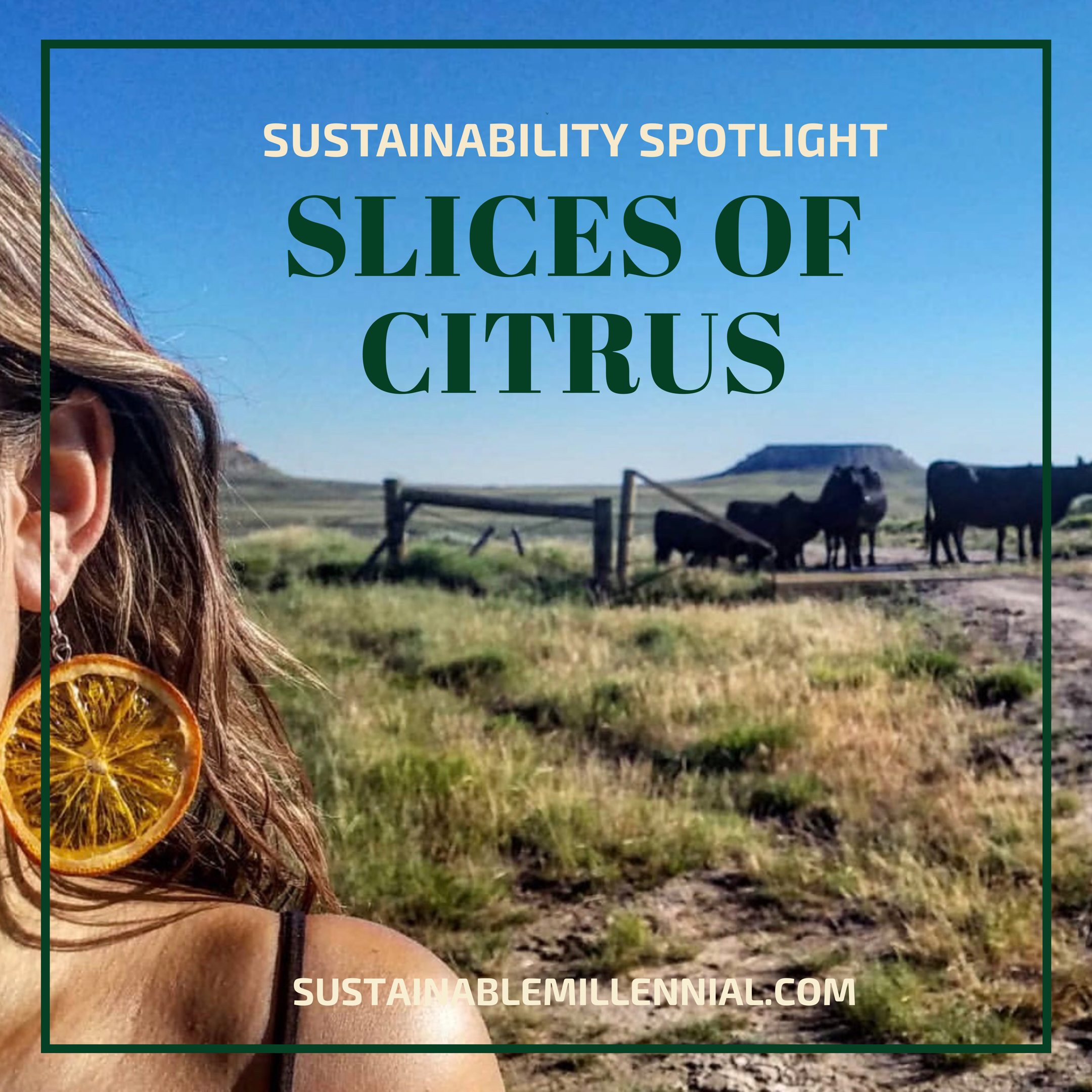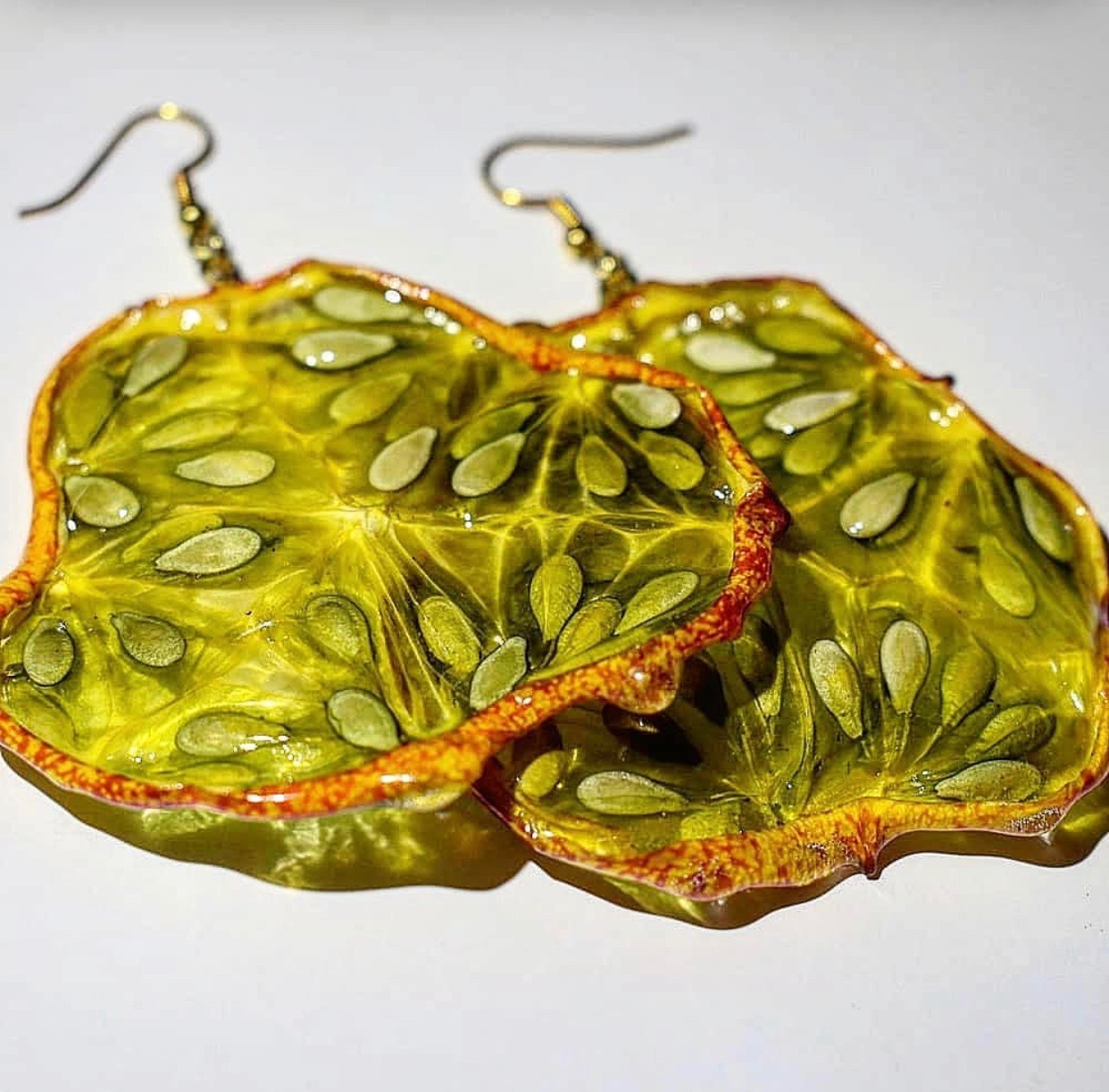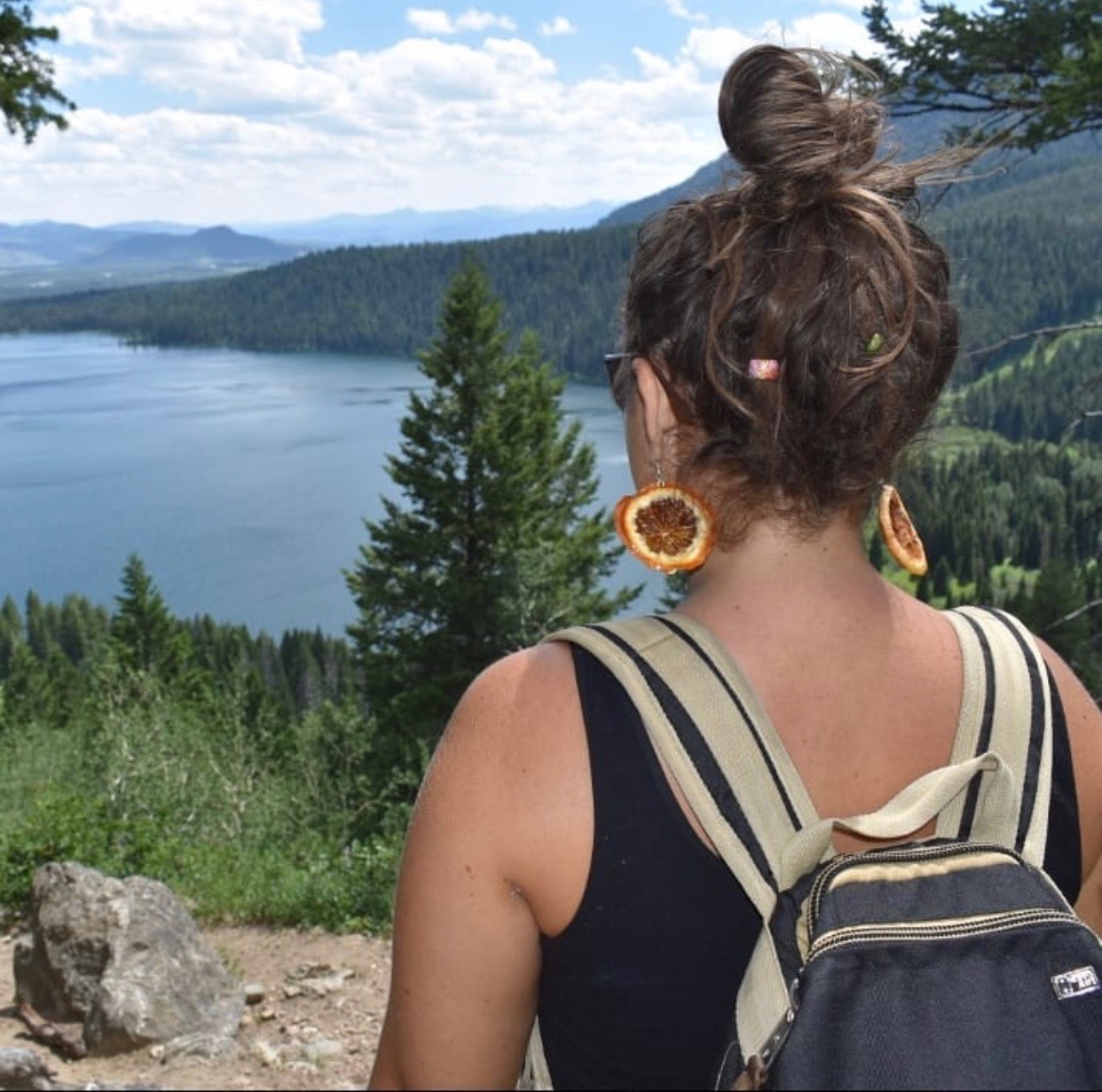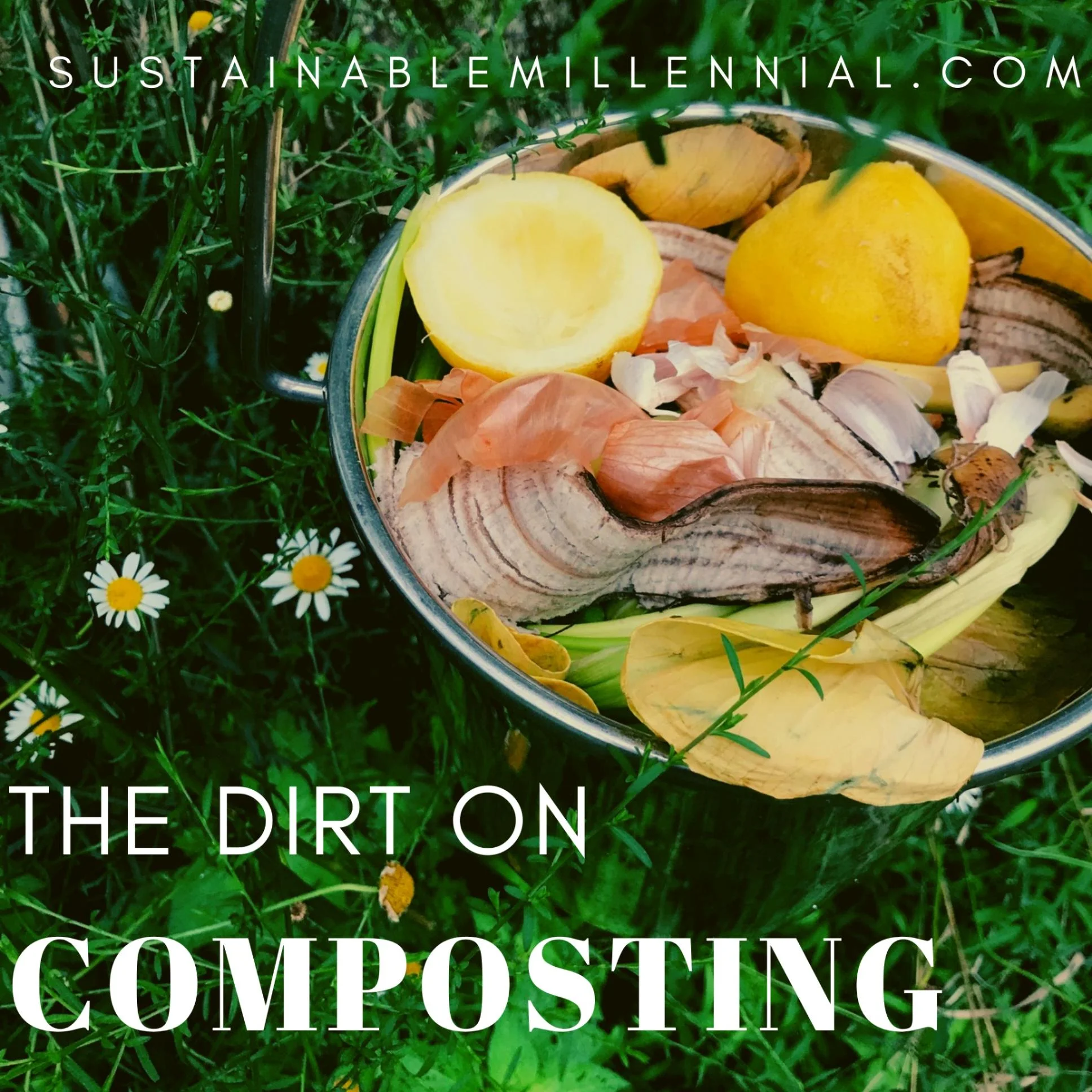Sustainability Spotlight: Slices of Citrus, Leah Sachs
Leah Sachs is the creative genius behind Slices of Citrus, an organic, handmade jewelry company that are eco friendly, and made with ♡. We chatted about what led her to discovering a plant based diet, a bit about her #vanlife lifestyle, and the challenges she has overcome to make it where she is today.
Can you tell us a bit about yourself and your background?
I went to college in Ithaca, New York, and Eric (who’s my partner, actually) also went to college out there. He was into Environmental Studies, and was super into the environment. I got super sick in college from the food because I grew up eating very healthy meals. I didn’t realize it was organic food, I just liked eating it and it was normal for me. When I went to college, I ate from the cafeteria and was hospitalized multiple times because my body was rejecting the pesticides. So, that’s what sparked me to start a healthy journey with myself and diet, and the switch to organic foods. From there, it evolved into me becoming a vegan. I don’t like the word “vegan” because it has a stigma behind it. I think I’m plant-based. If I was in another country and all I had to eat was fish, I probably would, but I don’t eat meat, and I don’t eat dairy.
I studied Marketing in college, and while I was working in New York City, I had a client called Tick Borne Disease Alliance. I realized with all my research and doing their social media that Eric had Lyme disease. It was pretty severe. It turned out, he’s had chronic Lyme disease for five years, and it went unnoticed. He was going to die, pretty much, so he had to change his whole diet. At the time, he experienced excruciating pain, memory loss, and constant sweating. We changed his diet to no sugar, and no gluten, plant-based and organic. That is what super pushed us to be healthy and start going to farmer’s markets. That was a really long background, but that’s why it’s so important to be non-GMO, supporting organic farmers and supporting a plant-based movement (it’s better for the environment). We care about our future and our health. That’s the basis of who we are as people.
How did Slices of Citrus come to be?
Slices of citrus is rooted in my love fruit and vegetables. I had a pair of oranges that I made into earrings, I just loved the pattern. I took them to a [music] festival and they completely sold out. Before that, I wore them all the time, and constantly people asked: “Where’d you get those?”
I got sick of working at the marketing agency (and as a bartender at the same time), so I needed a break to do what I love. I quit everything, and started making the fruit jewelry full time. People didn’t really believe in me (they were like: “OMG! Cool!”) but never thought it would work. No one helped me, it was just me. I started selling them on Etsy, and it went over so well that Eric quit his job to help me. He helped me make it more efficient and was full on supportive of it. We have done it together for 3 years (alone for 8 years). We wanted to be legitimate and trademarked. We are vendors at the Bowling County Farmers’ market, including the Longmont and Boulder markets, Westminster Farmers’ market, etc. We love crystals and love to incorporate them in our jewelry: we were vendors at the largest gem show (Tucson Gem and Minerals Show) in 2018, Denver Gem and Minerals Show (both Fall and Spring shows).
What challenges did you/ do you face?
I think it just comes down to being a small business and being stretched really thin. The whole money aspect of everything. Basically, you have to pay for all of your events in advance. These events are thousands and thousands of dollars. You always need stock which is also thousands of dollars because about multiple companies, it's a lot of money.
That is why it’s important to support small independent businesses. You’re not just helping their profit margin, you’re contributing to day to day costs. Would you care to elaborate on your lifestyle, you operate all of this while partaking in Van Life?
We were able to travel to all these different places around the country, and we've traveled the country, the entire United States like six times. So, we are always looking to do events and this and the other and so that element really was a huge pivotal point in us. To be able to just launch Slice of Citrus and go get it into different stores. And going to different events that are maybe like 10 hours away but hey, we have a bed in the back of the car. So that's what's happening right now is we got a Dodge Promaster. It’s a stand up Dodge, and it's epic, it’s totally solar equipped. There's water pressure and a water heater, sink, oven, and propane. I just don't even know how he's (Eric) so talented. He's not an electrician he's only worked with like wood and like, you know, building things his whole life and all of a sudden he taught himself how to like be electrician and set up the solar system.
That's why we're just so happy about our lives just because it helped us so much and it's even helped us with our ecological footprint. Yes we're here, but we're not using as much water, electricity as anyone else. And we can be in these awkward places and we're still self sufficient and we know how much water we drink. We both joke all the time like, I think we're our healthy selves when we're like on the road in van. Which is so crazy but you're just so aware of everything, it's really helped us to evolve as people and become more minimalist which is something I think everyone needs. Just get rid of all the extras and keep what brings you joy. As you know, in Slices and as a partnership and in a relationship, it's just like putting energy into the subject was stuff that you know, everyone says that you need and kind of just getting out into nature more and just living off the land a little bit more, being closer to the roots, walking barefoot and going swimming. Stuff like that just makes you feel like “Oh, this is the reason why we're here.” That feeling I like to feel.
What have you learned in your cross-US travels?
BLM land is so important, just treating what we have with respect and just giving back. People really abuse public lands and it's sad because you know they're there for us to use and we pay tax dollars to keep them fresh and clean. You know it's tough because people litter and they just don't think when they're just throwing something on the beach. That's not going anywhere and just someone else is going to have to deal with that. And so everywhere we go we're always cleaning up, and we always bring trash bags and we're just cleaning up everyone's messes and I just want to leave a place better than I found it because, enough is enough already. We all need to get a grip, this is our future and if we just ignore it, our kids and our grandkids they're going to be fucked. It’s sad, you wouldn't want to say, “I stood by and did nothing,” you should feel some sort of responsibility.
But some people just aren’t there yet and everyone's on their own journey. But if you just maybe buy something that you could reuse instead of using sandwich bags every day for your kids lunch, you can get like a tin container and reuse that tin container, and then eliminate something. Everyone gets like their Hydro Flask and I love how people bring on cups to Starbucks and I think it's amazing, like it's just things like that that are just, we don't think about because we're so it's so ingrained in our society but they're (plastics) not going anywhere. You can't do anything with plastic; it's super toxic to melt them and run them down. So, it's important for everyone to just take a second and just be aware of what they're what they're contributing and what they can do better and it's no shame on anyone and no hate on anyone just all love and support each other in this movement. Just kind of push each other a little bit more, just to a little bit more than I think we'll be in a better place.
Yeah, and that's kind of like how Sustainable Millennial has evolved as we've started it and kind of gone through what we're really passionate about. Because I run this with my childhood best friend. So we grew up down the street from each other. We've known each other our whole lives, and there's certain things that like I'm super into verses what she's super into which is nice because we have kind of like a diverse perspective, in a way. But something that I've found is, we're trying to make this space for people that aren't the zero waste community or the perfect environmental people we want to like inspire the average Joe to maybe just use a tin container for his sandwich. And, that's like the space that we're trying to create we're trying to make it like an accessible area like we're not telling everyone okay go be vegan tomorrow we're saying, “Okay, If you're going to choose to go to Taco Bell there's a vegan option,” or we're going to say “if you're gonna get Starbucks, here's a way that you can do it in a less impactful way on the environment”. We're saying, “Okay you know make one change. Make one simple change. Maybe try eating vegetarian for a day. Start there and see how it goes.” You can make small changes that can really make such a big impact if you think of just something as simple as switching you're like, you gave the example of the sandwich container. If you take the time to say hey like this is the whole process someone would be way more apt to be like, okay, I'll just like use a tin.
When you think about zero waste it can seem really radical. And that’s a beautiful concept. It's a journey and everyone is so disassociated from what's actually going on that when you actually start bringing them the facts and the truth. It's scary, a scary thing to hear. It's like your world is getting turned upside down because everything you do is contributing to that.
And I think it's just important to simplify it, on an everyday level. What you could do to eliminate single use plastic, and just supporting companies that are doing good and not just the company that's giving back, but like a company that actually is using sustainable practices. That's the most impactful thing you can do. It is buying from companies that actually support sustainability and have a sustainable core belief that becomes the center and then that's when real change starts to happen. I think that people are starting to wake up, and it's just, we don't need to like to vilify people who like using a straw, but we can just kind of explain like you know straws aren't even necessary. I’m so happy to be on this journey and have evolved my own company into a sustainable company, and really just reuse, recycle and upcycle--everything about it. And yeah, I'm really grateful to be doing that. I mean, whatever it may be, it's super symbiotic and I think that it's easier than people think and it's really great to see companies like you that are trying to support and highlight what others are doing. Hey, you can support this company and they're doing that it's like hey look at this these cotton pants or there's these have pants and because of it you know and it's like we're not asking you to like stop buying things.
Do you have any advice for someone who may be interested in starting a sustainable business or a sustainable company on online, like any advice just for anyone who's looking to kind of get into this space?
I would say really take the time and figure out what matters to you. Kind of take something that matters to you, and you know that you're good at, or that you can you really understand and see how you can make it better. Not reinventing the wheel you know you don't need to create a new electronic bike. Are you good at making jewelry? Are you good at making clothing? Could you be using a different type of material that can help the environment?
My advice is just like listen to your gut, you know listen to your heart. That's really the best advice I can give. For me, it was really listening to my heart, because nobody supported this in the beginning. It has to be something tangible, something small that you can start with. You can change the community around you. Start the shift and practice what you preach like don't start a company just for profit. It shouldn't just be for profit like all of everything that I'm involved in. I think it's so successful because it wasn't for profit.














